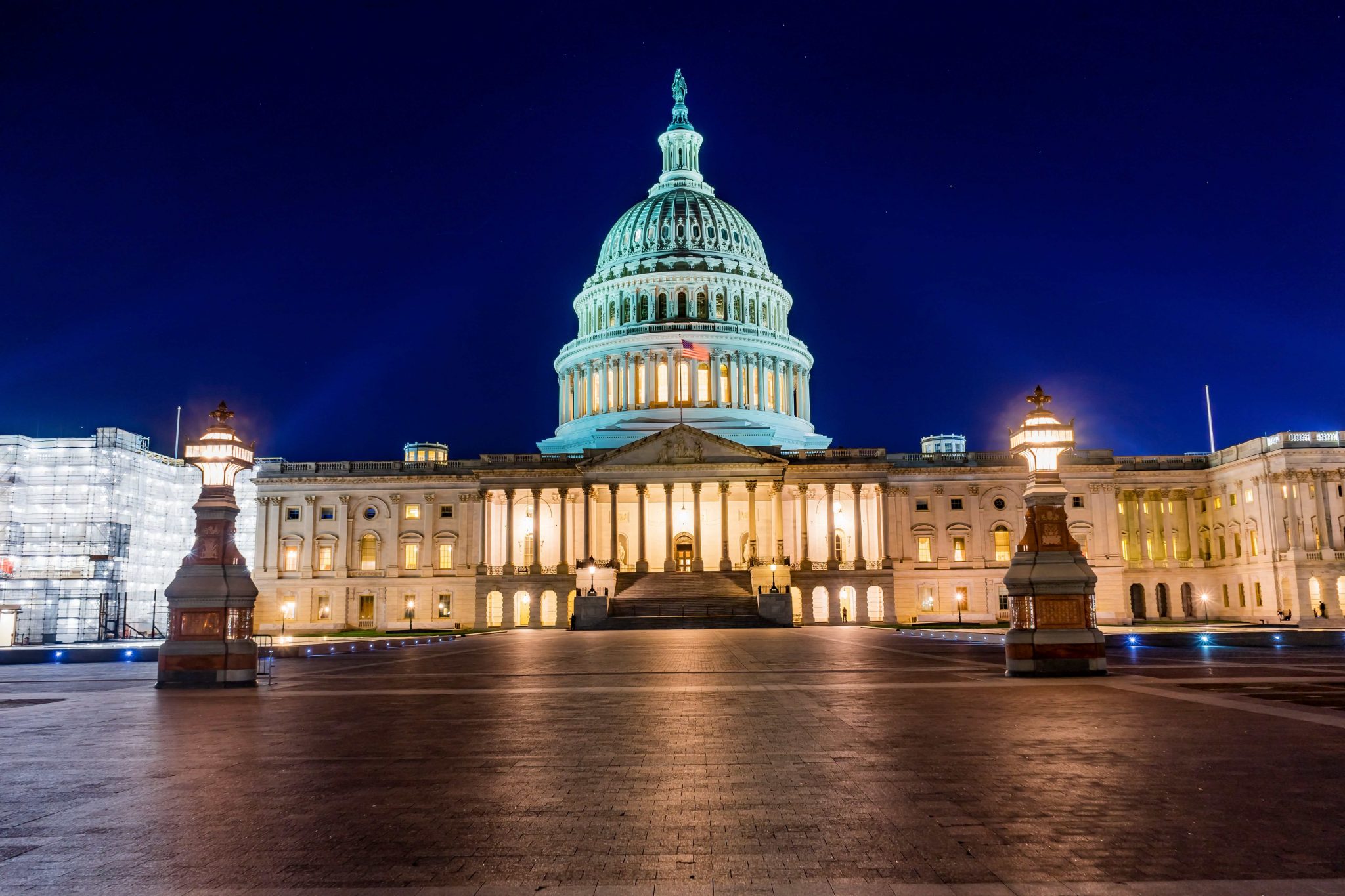The United States Congress passed the National Defense Authorization Act for Fiscal Year 2020, an annual bill designating funding for the Department of Defense, on a bipartisan basis. Priorities outlined in the NDAA will drive important elements of United States defense policy for the coming year, and this bill includes key provisions that help the government confront the threat of foreign interference and secure democracy. In particular, it takes steps to secure U.S. elections, confront disinformation operations, and protect civic institutions from foreign interference. While other institutional weak points, like the U.S. campaign finance system, remain, the NDAA represents a significant step towards addressing key vulnerabilities in democracy.
Not Just Russia
This NDAA reflects a recognition that the foreign interference threat will broaden over the coming years, and that Russia is only the most aggressive and conspicuous of several foreign regimes that aim to disrupt and discredit our democratic process. While prior legislation established a Committee to Counter Active Measures, which focuses on identifying and countering Russian attacks on our institutions, this legislation broadens that committee’s purview to include Chinese, North Korean, and Iranian efforts as well.
Securing Electoral Systems ahead of 2020
FBI Director Chris Wray has warned that United States is likely to face formidable authoritarian interference efforts in the 2020 election, and provisions included in this year’s NDAA are crafted to help secure our systems against these attacks. The NDAA authorizes the Director of National Intelligence (DNI) to provide senior state election officials with Top Secret security clearances, so that they may view high-level intelligence related to cyber threats facing their operations. Ensuring that election officials have the most relevant and up-to-date threat information is critical to identifying and defeating interference efforts, and this has the potential to significantly improve information sharing between the intelligence community and state election officials. Congress has also mandated that the DNI coordinate a whole-of-government strategy for countering threats to United States elections, and the DNI will be tasked with submitting regular reports to Congress on state-level election system vulnerabilities in the lead up to federal elections. Critically, the bill mandates public reporting on threats to and attacks on campaigns and candidates in the months leading up to elections. Such reports will include descriptions of the threats, as well as best practices and resources for countering them, and will provide candidates, parties, and voters the opportunity to contextualize these influence operations as they are discovered.
Responding to Interference from Beijing
While Russian interference is well known, American and European institutions are facing greater pressure from the Chinese Communist Party as well, especially surrounding sensitive issues like the Hong Kong protests and the detention of Muslims in Xinjiang. Through the NDAA, Congress has taken several steps to begin to counter these efforts. Congress singles out the United Front Work Department — an agency of the CCP responsible for influencing elite individuals within and outside China, and which constitutes a major vector of interference — for special scrutiny, requiring greater reporting on its activities in the United States. The NDAA also requires the DNI to report on the threat Chinese hegemony over regional or global 5G wireless infrastructure poses to national and informational security, as well as on efforts to avoid or mitigate such an outcome. It also establishes DNI oversight over foreign efforts to influence American academia, which has long been a source of tension between the United States and China. The DNI will produce a report, which will include a list of sensitive research subjects, a list of foreign entities that are determined to pose a counterintelligence or espionage threat to progress on such research, and any known or suspected attempts by foreign entities to pressure or coerce institutes of higher education, including attempts to limit freedom of speech. The DNI’s report will also include recommendations for collaboration between the American intelligence community and academic institutions.
Critically, the NDAA also includes provisions that protect Chinese-Americans from discrimination and stereotyping that might accompany increased scrutiny of PRC activities. As ASD China Analyst Matt Schrader points out, the United States has a duty to protect all of its citizens from foreign interference and pressure campaigns, and Chinese-Americans are particular targets of Beijing’s efforts.
The bill also addresses the ways in which China is undermining liberal values in its own backyard by requiring the DNI to report on the ongoing repression of Xinjiang’s Muslim population and Chinese efforts to interfere in Taiwan’s 2020 elections.
Understanding the Evolving Threat Environment
As new tools and technologies change the way citizens interact with each other and with political institutions, they have also opened up new vulnerabilities for democracies. This NDAA aims to anticipate some of these vulnerabilities by mandating that the DNI report on the development of several technological trends with the potential to be major tools of authoritarian influence in the near future.
The NDAA warns that facial recognition technology is already used to suppress human rights around the world, and that it is not consistent with the interests or values of the United States to transfer such technology to authoritarian regimes. The NDAA requires the DNI to report on the use of facial recognition technology by the U.S. intelligence community to ensure that it is responsible and appropriate. The DNI will also be required to report on the national security implications of “deepfake” video and audio manipulation technologies and any potential or actual use of such content as a tool of malign influence. Critically, this report will include a specific analysis of ongoing Russian and Chinese state efforts to develop these tools.
The bill also mandates a DNI report on current intelligence community developments of artificial intelligence and machine learning. These technologies are likely to be central to the economy of the future and represent a technological sphere in which the United States cannot afford to fall behind. At the same time, such technologies present novel social and political questions, as well as potentially unique threats to civil liberties, and, thus, are subject to particular oversight by the DNI and Congress.
Raising Standards for Social Media Companies
Social media has been one of the most important vectors of Russian interference — and one of the most high-profile as well. Russian efforts to divide and mislead Americans on social media began well before the 2016 election and continue today. Meanwhile, the apparent success of these social media disinformation campaigns has encouraged other foreign actors to adopt similar tactics, and the tools and approaches have become more nuanced and sophisticated.
To respond to this challenge, the 2020 NDAA establishes a Social Media Data and Threat Analysis Center at the DNI. The Center will be responsible for coordinating the government-industry partnership that will be required to take on these operations in a comprehensive way. Archiving, analyzing, and, when possible, publishing reports on these influence operations has so far proved to be one of the most effective approaches to hardening American networks and communities against them. By bringing together the perspective that social media companies have on their own networks and users and the threat information possessed by the government, the Threat Analysis Center will provide a mechanism for quickly identifying and disrupting malicious behavior.
With this legislation, Congress has made laudable progress in protecting American democracy from authoritarian interference. There is, of course, much more to be done. The United States and its allies must respond holistically to a threat that makes use of a diverse array of tools to weaken and divide democratic societies. We all share a responsibility to make sure they do not succeed.
The views expressed in GMF publications and commentary are the views of the author alone.






